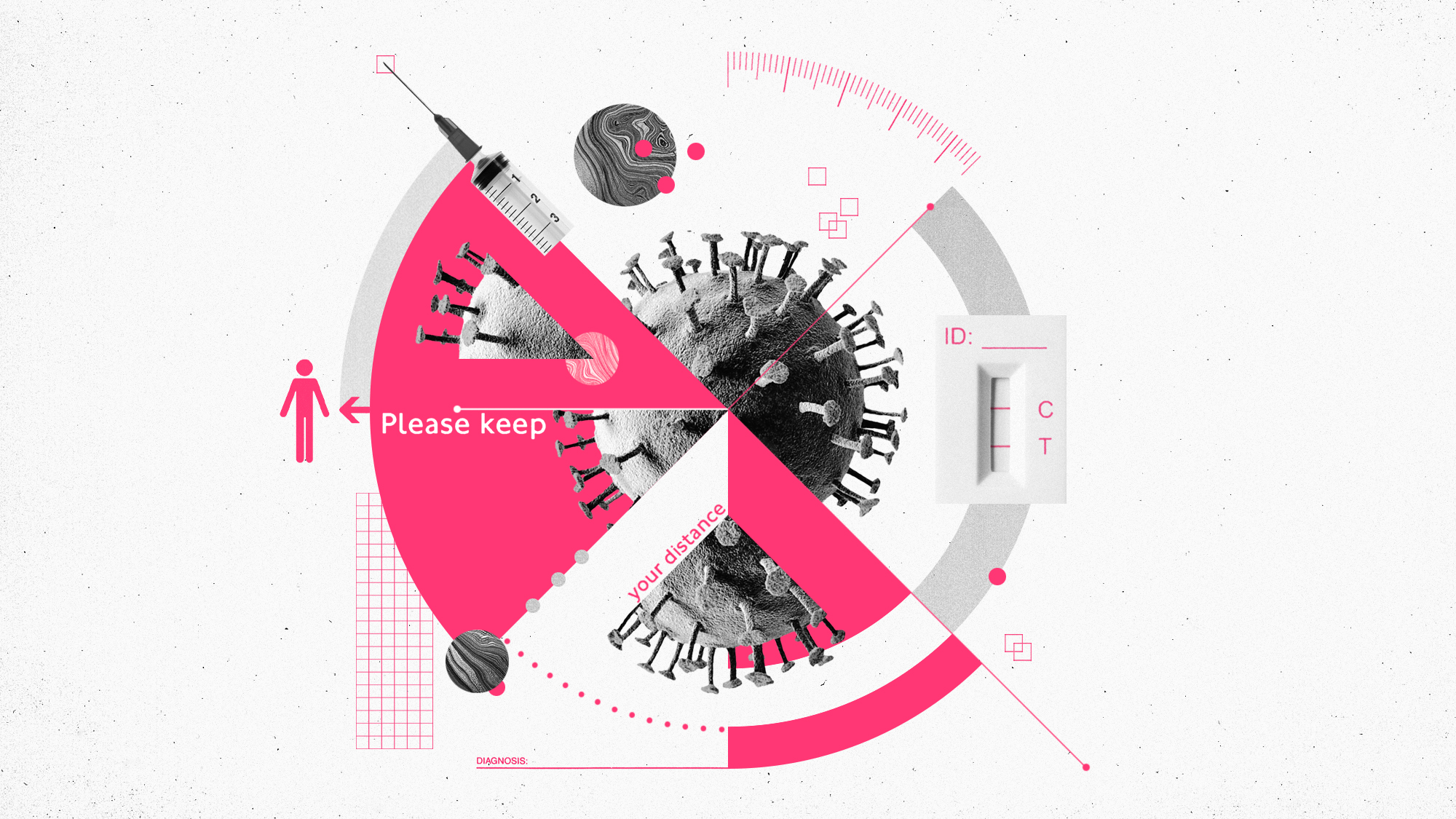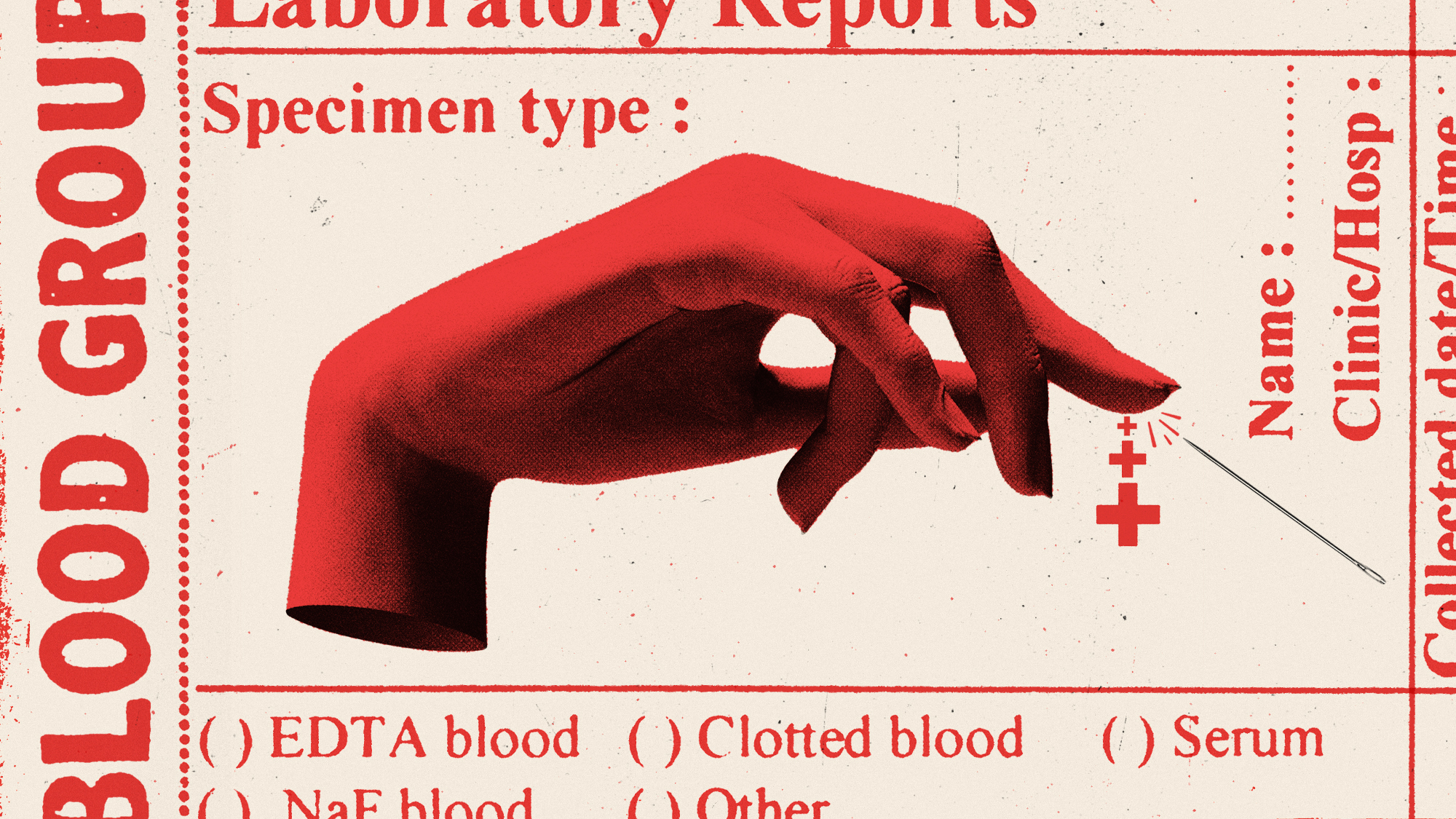What does Covid look like in 2024?
Disease experts are calling for closer monitoring as new variant fuels rise in infections

A free daily email with the biggest news stories of the day – and the best features from TheWeek.com
You are now subscribed
Your newsletter sign-up was successful
Scientists are calling on the government to monitor Covid levels throughout the year amid a summer wave of cases powered by a new variant.
At the moment, infection rates are measured in the general population only from November to March, and this leaves scientists "short on Covid data" during the rest of the year, said the inews site.
But "many of us" know someone who has "come down with nasty cold-like symptoms over the last few weeks", said The Independent and "talk about the resurgence of Covid has started circulating".
The Week
Escape your echo chamber. Get the facts behind the news, plus analysis from multiple perspectives.

Sign up for The Week's Free Newsletters
From our morning news briefing to a weekly Good News Newsletter, get the best of The Week delivered directly to your inbox.
From our morning news briefing to a weekly Good News Newsletter, get the best of The Week delivered directly to your inbox.
What did the commentators say?
The new dominant variant in the UK, KP.3, which belongs to a group known as the FLiRT variants, accounted for 64% of infections as of 30 June. Although there's no evidence that the variant is any more severe than previous waves, it does appear to be more infectious.
The lack of data is "extremely irritating", Professor Christina Pagel of University College of London told the inews site, especially "when we are in the middle of a significant Covid wave". Restarting wastewater monitoring would be "extremely helpful for giving us early warning of issues", she said.
Until that monitoring is resumed, the only data we have is based on lab tests and swabs taken from people in the healthcare system. Those suggest that the number of infections a year ago were a fraction of what they are today, and prove that Covid is "not seasonal", said Simon Williams of Swansea University, but "an unpredictable and year-round virus".
Another argument for greater monitoring is that doctors say it's now nearly impossible to diagnose a person with the illness based on symptoms alone.
A free daily email with the biggest news stories of the day – and the best features from TheWeek.com
Some people with Covid "end up feeling more like they have food poisoning than anything else", said The New York Times. Diarrhoea, lost of appetite, nausea, abdominal pain and vomiting are among the "overlooked" symptoms.
Others are confused by the similarity of symptoms for Covid and hay fever. This "respiratory double whammy" is "the battle of the summer", said The Telegraph and "at stake" are "the hearts and lungs of the nation". But the BBC noted that the official list of Covid symptoms "has not changed".
"Every week, we test someone for Covid who I didn't think had it who tests positive," Dr Steven Furr, a family physician, told NBC News. "Then we have others who I'm pretty sure have Covid who test negative."
Dr Bernard Camins, a medical director for infection prevention, agreed that, without a test, "you can't tell nowadays whether it's a cold or Covid".
What next?
The "tug of war" between our immune system and Covid's evolution continues, wrote Nathan Bartlett, Professor at the School of Biomedical Sciences and Pharmacy, University of Newcastle, Australia, on The Conversation.
Covid vaccines now "don't sufficiently protect from infection or suppress virus transmission", which gives the virus more "rolls of the dice" to "find a mutation that helps it evade our immune system and infect our cells".
Moderna has offered hope by announcing a single vaccine that's been shown to protect people from both Covid and influenza viruses – and with a higher effectiveness than vaccines that target one or the other, reported Nature.
Meanwhile, the first phase of human trials studying a possible nasal Covid vaccine has opened. Researchers believe it may provide higher levels of protection against emerging variants than the vaccines given via injection, ABC News reported.
Chas Newkey-Burden has been part of The Week Digital team for more than a decade and a journalist for 25 years, starting out on the irreverent football weekly 90 Minutes, before moving to lifestyle magazines Loaded and Attitude. He was a columnist for The Big Issue and landed a world exclusive with David Beckham that became the weekly magazine’s bestselling issue. He now writes regularly for The Guardian, The Telegraph, The Independent, Metro, FourFourTwo and the i new site. He is also the author of a number of non-fiction books.
-
 The ‘ravenous’ demand for Cornish minerals
The ‘ravenous’ demand for Cornish mineralsUnder the Radar Growing need for critical minerals to power tech has intensified ‘appetite’ for lithium, which could be a ‘huge boon’ for local economy
-
 Why are election experts taking Trump’s midterm threats seriously?
Why are election experts taking Trump’s midterm threats seriously?IN THE SPOTLIGHT As the president muses about polling place deployments and a centralized electoral system aimed at one-party control, lawmakers are taking this administration at its word
-
 ‘Restaurateurs have become millionaires’
‘Restaurateurs have become millionaires’Instant Opinion Opinion, comment and editorials of the day
-
 An introvert's dream? Flu camps that offer £4,400 to spend two weeks alone
An introvert's dream? Flu camps that offer £4,400 to spend two weeks aloneUnder The Radar A fortnight in isolation may not be as blissful as it sounds
-
 Why does the US want to put nuclear reactors on the moon?
Why does the US want to put nuclear reactors on the moon?Today's Big Question The plans come as NASA is facing significant budget cuts
-
 Is the world losing scientific innovation?
Is the world losing scientific innovation?Today's big question New research seems to be less exciting
-
 Why some people remember dreams and others don't
Why some people remember dreams and others don'tUnder The Radar Age, attitude and weather all play a part in dream recall
-
 Finger-prickin' good: Are simpler blood tests seeing new life years after Theranos' demise?
Finger-prickin' good: Are simpler blood tests seeing new life years after Theranos' demise?Today's Big Question One Texas company is working to bring these tests back into the mainstream
-
 Is dangerous weather in the Mediterranean Sea the new normal?
Is dangerous weather in the Mediterranean Sea the new normal?Today's Big Question A waterspout, or sea tornado, recently sank a superyacht off the coast of Sicily
-
 What would a colony on the Moon look like?
What would a colony on the Moon look like?Today's Big Question People could be living in lunar 'houses' by 2040, says Nasa
-
 Is Hurricane Beryl the sign of another dangerous storm season?
Is Hurricane Beryl the sign of another dangerous storm season?Today's Big Question Climate change is fueling the frequency and intensity of storms